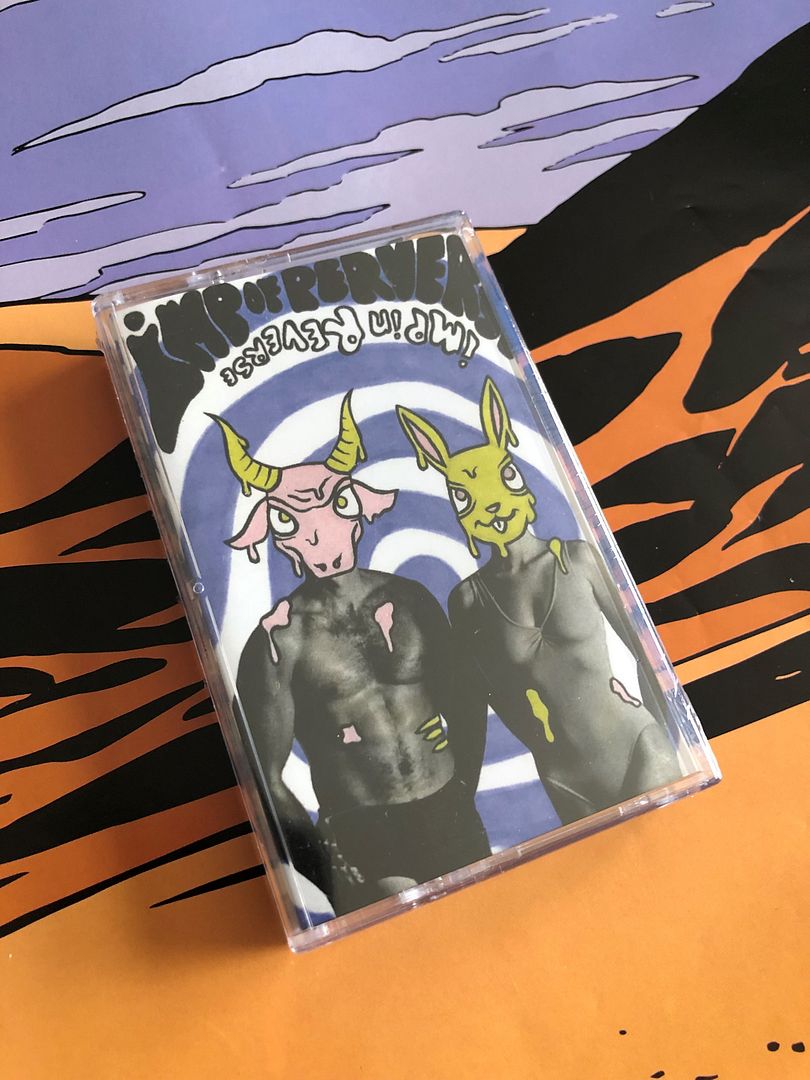

We peer into the abyss – we grow sick and dizzy. But out of this our cloud upon the precipice's edge, there grows into palpabil 'We stand upon the brink of a precipice. By gradations, still more imperceptible, this cloud assumes shape, as did the vapor from the bottle out of which arose the genius in the Arabian Nights. By slow degrees our sickness, and dizziness, and horror, become merged in a cloud of unnameable feeling. Our first impulse is to shrink from the danger.

I tip my hat to Poe, and to his narrator, for another fantastic tale.more Which is itself perverse! Oh, my mind boggles. In other words, what's really "perverse" in the narrator's mind isn't killing someone, but confessing.

No, the true irony of this tale is that the Imp of the Perverse only comes into play afterwards, when the narrator can't contain his impulse to shout out his confession in a crowd. But if you think about it, this crime itself really isn't an example of the Imp of the Perverse at work, because the narrator did have an ulterior motive, namely to get the estate. Of course this might simply be the narrator's way of disavowing any personal responsibility for his crime, which consisted of killing someone by means of a poisoned candle in order to inherit their estate. In this tale, Poe's narrator turns from his essay to his personal story, in which he claims to himself be a victim of this "Imp of the Perverse"-this primitive desire to do wrong. It is a radical, a primitive impulse-elementary." He uses as a famous example a person standing "upon the brink of a precipice" who is somehow drawn to the edge, desiring to fall precisely because "it involves that one most ghastly and loathsome of all the most ghastly and loathsome images of death and suffering which have ever presented themselves to our imagination."Īs an aside, we might also see this same impulse on a national level, as when Orwell writes about the appeal of fascism, in which a leader promises struggle, danger, and death, "and as a result a whole nation flings itself at his feet." But that's a discussion for another day. Poe had the keen insight into human nature to say that's foolishly naive.Īs Poe writes: "Nor will this overwhelming tendency to do wrong for the wrong's sake, admit of analysis, or resolution into ulterior elements. That's crazy! People are rational! They'd never do that! This is what Poe called "the pure arrogance of the reason"-the arrogance to assume that people are always reasonable, that if you only explained what's right and what's wrong to them, they'd choose to do what's right. And that's saying a lot! It begins as an essay in which Poe describes the impulse to do wrong precisely because we know it's wrong. Poe ha This is one of the more structurally unusual of Poe's tales. This is one of the more structurally unusual of Poe's tales.


 0 kommentar(er)
0 kommentar(er)
